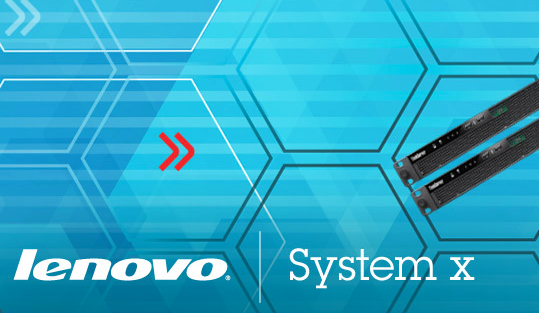
Lenovo wants to become the world’s top server maker in five years, by “attacking” growth areas such as server consolidation, Windows Server 2003 migrations and technology upgrades.
Last year, the Chinese PC maker acquired IBM’s x86 server business for US$2.1 billion, instantly lifting it from number six in the global x86 server market to number three position.
But since the acquisition, Lenovo’s x86 market share has slid from about 14 per cent to about 10 per cent worldwide. At the Lenovo Tech World in Beijing this week, the company outlined its strategy to stem further slides in market share and grow its enterprise business.
For a start, Lenovo will target organisations that are looking to consolidate their servers through virtualisation, particularly in emerging Asian markets where virtualisation efforts are just starting to take off.
While fewer servers are usually needed in a virtualised IT environment, Koh Kong Meng, vice president for enterprise business group at Lenovo Asia-Pacific, noted that more powerful servers are necessary to run more IT workloads such as big data.
Lenovo is also counting on technology upgrades in enterprises, along with Windows Server 2003 migrations, to spur its server business. As of March this year, nearly 60 per cent of organisations in the Asia-Pacific region still use at least one instance of Windows Server 2003, which will not be supported by Microsoft from July 14.
Lenovo had previously said that the x86 hardware business will boost its overall profitability in the declining PC market and fuel investments in tablets and smartphones, enabling it to offer a complete range of IT hardware to businesses.
“We are the only vendor left in the world that is focused on complete solutions. And because we are number one in PCs, we can engage CIOs and CTOs in discussions on not just PCs, but also on servers, storage and solutions,” Koh said.
Plus, with more enterprises allowing employees to use personal devices for work, Koh said Lenovo is in a better position to sell Lenovo tablets and devices that consumers are already familiar with to more businesses.
“Unlike our competitors that are splitting their businesses into two, or stepping away from the public spotlight by delisting themselves from the stock exchange, we believe that by providing a solution that includes devices and IT infrastructure, we can deliver more value to enterprise customers,” Koh said.
That said, Koh revealed that unlike other enterprise IT suppliers, Lenovo will not dip its toes into software and cloud services, choosing to work with software providers to deliver complete hardware and software offerings instead.
“Lenovo’s strength lies in hardware – servers, storage and other enablers such as firmware. But we’ll work with key strategic partners like EMC and Microsoft. Our heritage at Lenovo is that we are very comfortable with working in multi-vendor relationships where we compete and work with one another,” Koh said.
Asked if Lenovo is planning to introduce hyperconverged appliances, the building blocks for creating a software-defined data centre, Koh said hyperconvergence is “on the radar” with no firm product plans for now.






